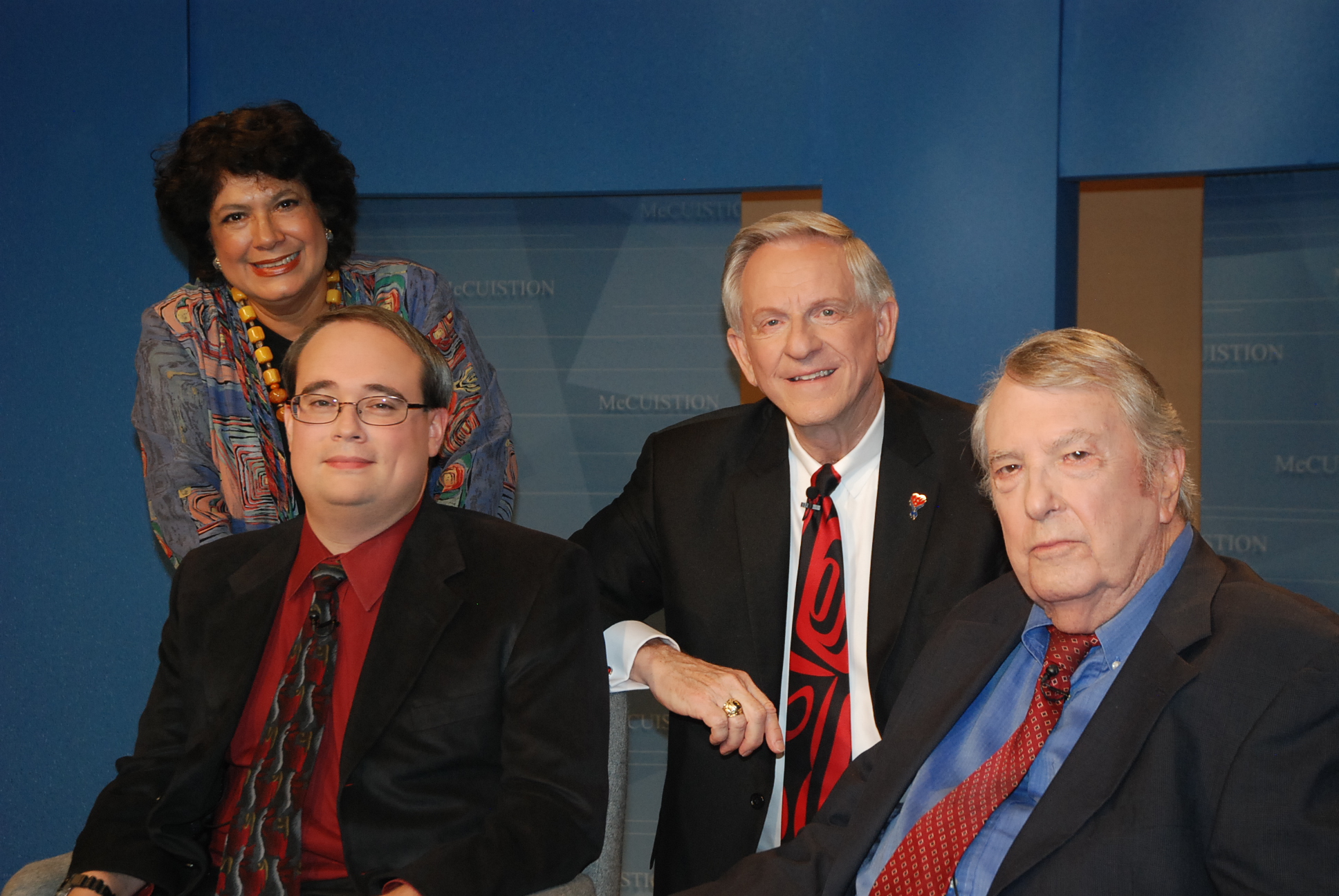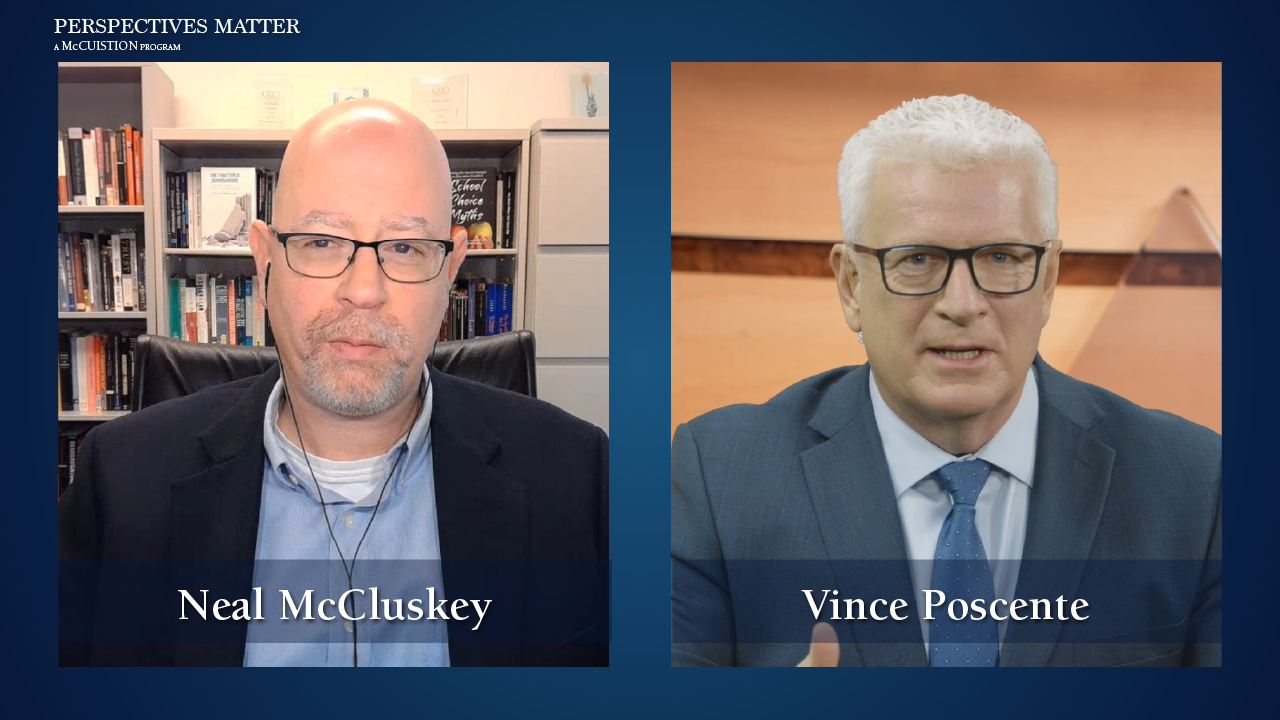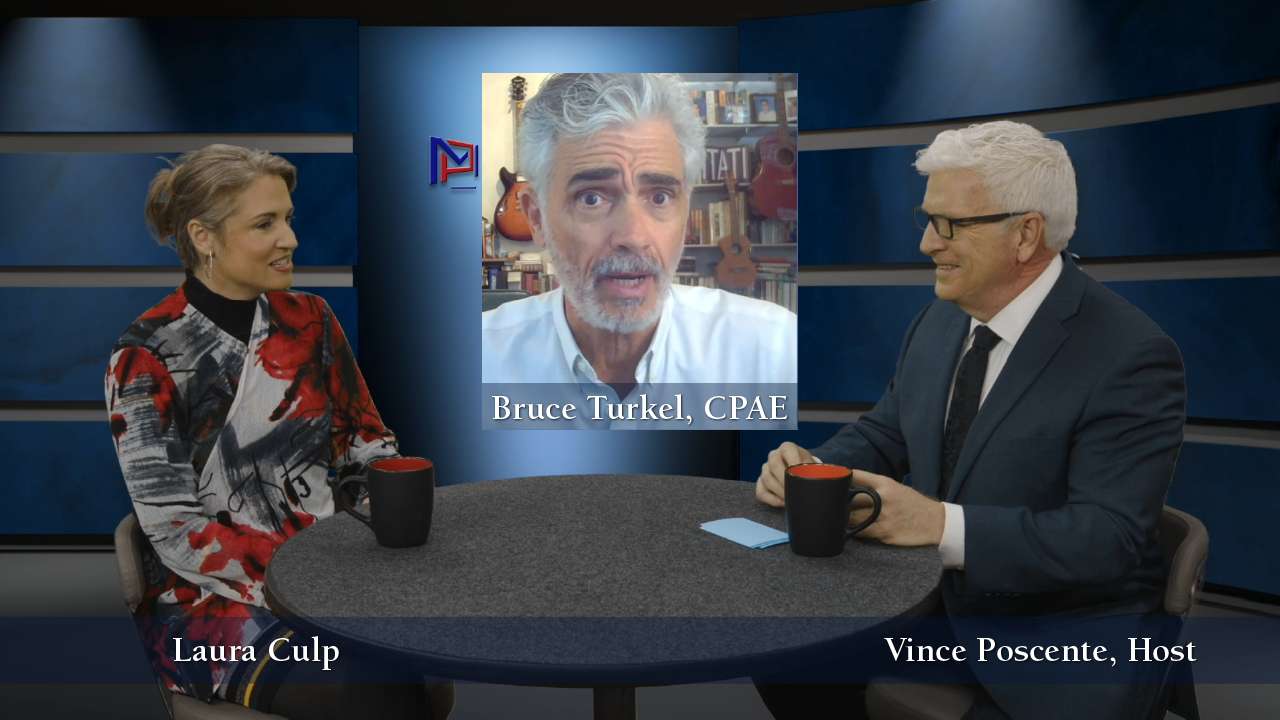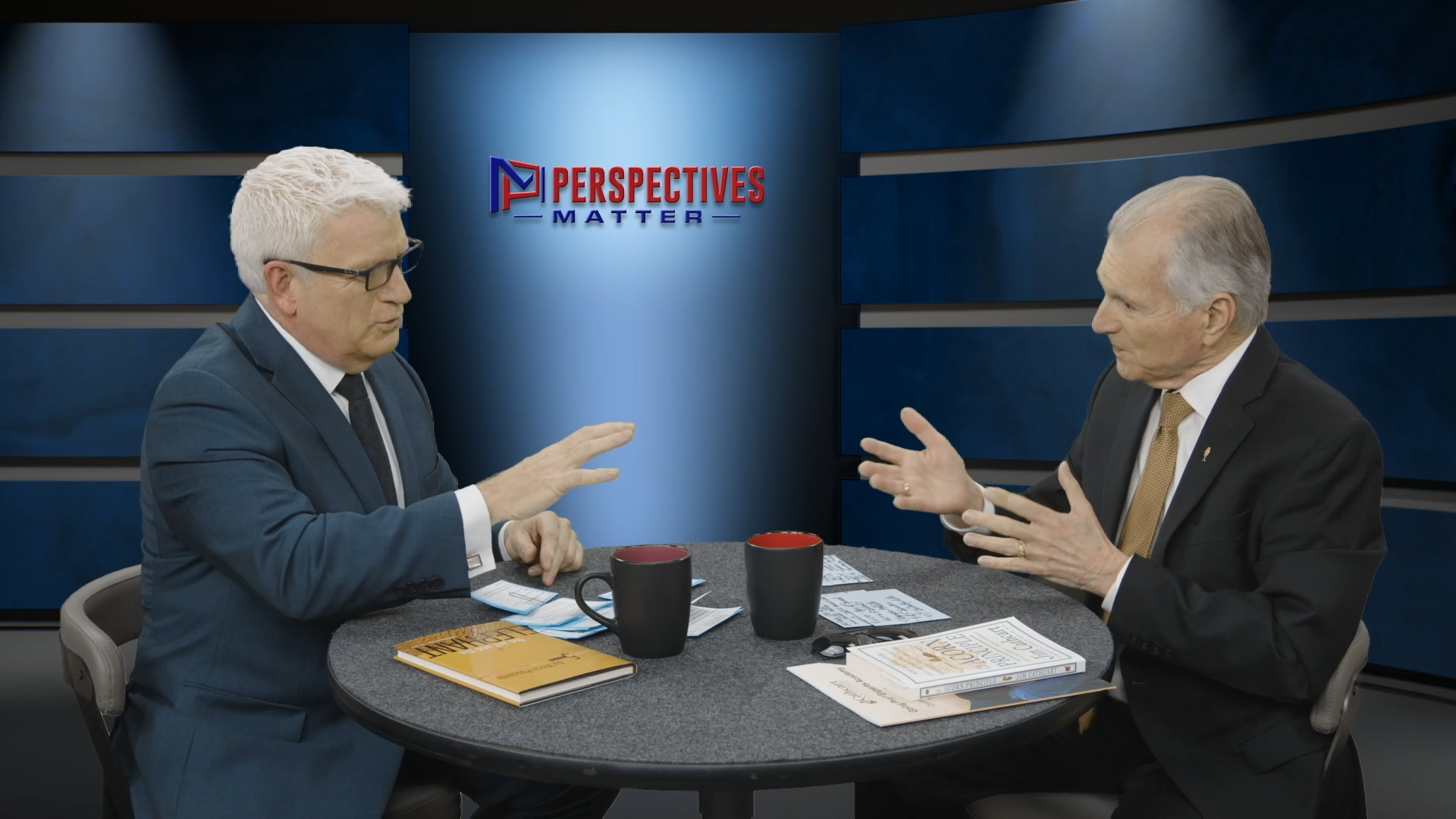Joining host, Dennis McCuistion, are guests:
- Stephen Fagin – Associate Curator and Oral Historian, The Sixth Floor Museum at Dealey Plaza; Author of Assassination and Commemoration
- Wes Wise – Co-author When the News Went Live; Former Dallas Mayor 1971- 1976
The time leading up to President Kennedy’s visit to Dallas was volatile. Adlai Stevenson, visiting Dallas a month earlier for a United Nations conference, had been attacked by a picketer. While Dallas was known as a very patriotic city, it also had a reputation for having people with extremist views.
Pierce Allman, at that time a reporter with WFAA Radio, tells us that President Kennedy had not wanted to make the trip. Yet, party leaders had convinced him that he needed to do so in order to unite the party. The city of Dallas was excited about the visit, especially as Mrs. Kennedy was accompanying the President, something she rarely did. The atmosphere after the assassination was one of intense self-examination. He says, “People asked themselves, ‘did I do something- that something so tragic could occur?’” He believes Dallas changed afterward.
For years after the assassination, Dallas was considered a city of hate by many around the country, and vilified as a city of shame. The New York Times branded it as “a city not too many decades removed from vigilante traditions of the old frontier.” Ten years after the assassination, Wes Wise recounts being at a mayor’s conference in Chicago and a fellow mayor accosting him with, “How does it feel to be mayor of the city that killed the President?”
Yet as Stephen Fagin says, Dallas has moved past the stigma and is a city with a bright and great future. Many wanted to tear down the old school book depository based on it being a blot on the city. It was also saved from commercial exploitation after it was put on the auction block in 1970 by concerned citizens, including Wes Wise, Lindalyn Adams and Conover Hunt, among others. Now it is now the second most visited museum in Texas, welcoming over 350,000 guests a year, many of whom are young people who were not alive at the time. The museum has a full scope of information, records, readings, books and video, which offer a full grasp of the era and history.
Mr. Fagin talks about the Sixth Floor Museum’s oral history project, a dynamic and ongoing 25-year plus initiative, of audio-visual interviews of people around the world, reflecting on the life, death and legacy of President Kennedy and the history and culture of the time. The museum welcomes individuals who want to share their story. Visit www.jfk.org for more information.
Talking about things that matter… with people who care.







